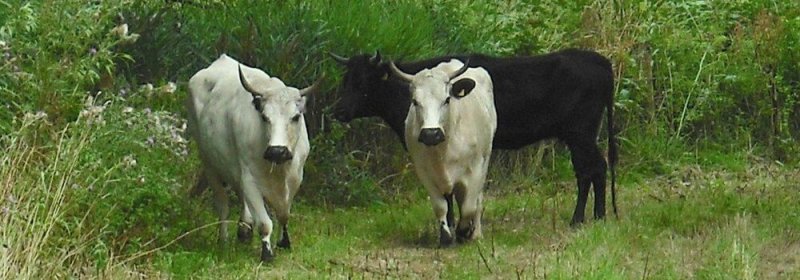When you think about Britain’s endangered animals, hedgehogs, small tortoiseshell butterflies and puffins may spring to mind. But rare breeds of farm animals and horses face extinction, too.
The Rare Breed Survival Trust (RBST) published a list of endangered breeds…. At a critical point are vaynol cattle, with only 12 breeding females remaining. The suffolk horse is similarly threatened, with 80 breeding females left. Many breeds of cow, sheep and pig make the list. The solution? According to the RBST, we should eat them.
“The only reason farmers will keep them is if we start eating them,” says Tom Beeston, the head of the RBST and a farmer. High consumer demand for cheap meat has led to the agricultural industry choosing breeds that fatten quickly through intensive feeding. Rare breeds take more time to grow and therefore cost more to feed.
The Vegan Society has ridiculed the idea, arguing that farming animals is a leading cause of species extinction, habitat loss, water consumption and pollution. Spokesperson Dominika Piasecka says the animals should be left alone in a sanctuary setting.
…
The RBST doesn’t suggest we start eating horsemeat, but it thinks the subject should be debated.
Read full, original post: Could eating rare-breed animals save them from extinction?































